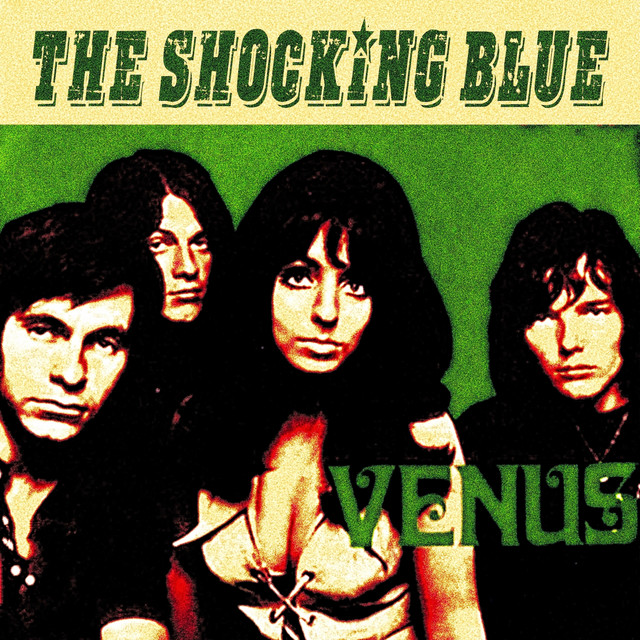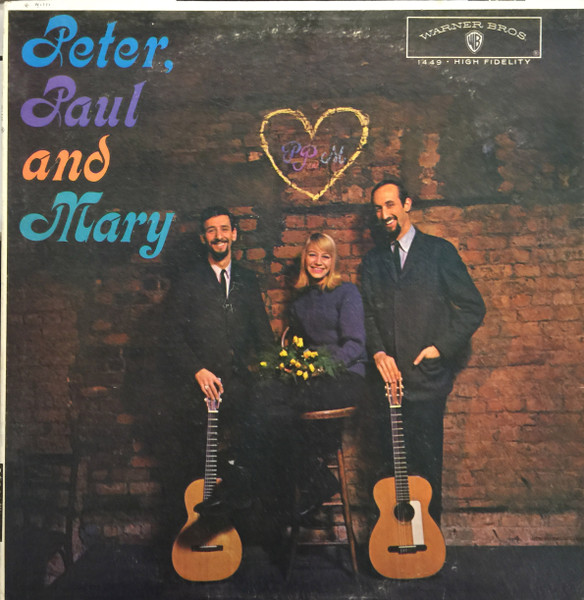 There’s something hauntingly timeless about “Alone Again Or” by Love — a song that seems to exist in its own delicate universe, shimmering somewhere between folk melancholy, orchestral pop, and psychedelic daydream. Released in 1967 as the opening track of Love’s masterpiece Forever Changes, it’s a song that defies every boundary of the late-‘60s counterculture. Where other bands were stretching outward toward cosmic jams and sonic excess, Love turned inward — crafting a song that sounds like a sigh. “Alone Again Or” is a piece of music so exquisitely fragile, it feels as if it might crumble if you touch it. Yet it remains one of the most enduring and mysterious songs of its time, a work that captures the end of the Summer of Love before the flower wilted.
There’s something hauntingly timeless about “Alone Again Or” by Love — a song that seems to exist in its own delicate universe, shimmering somewhere between folk melancholy, orchestral pop, and psychedelic daydream. Released in 1967 as the opening track of Love’s masterpiece Forever Changes, it’s a song that defies every boundary of the late-‘60s counterculture. Where other bands were stretching outward toward cosmic jams and sonic excess, Love turned inward — crafting a song that sounds like a sigh. “Alone Again Or” is a piece of music so exquisitely fragile, it feels as if it might crumble if you touch it. Yet it remains one of the most enduring and mysterious songs of its time, a work that captures the end of the Summer of Love before the flower wilted.
The year 1967 was a creative explosion in rock history. Psychedelia had reached its kaleidoscopic peak — Sgt. Pepper’s Lonely Hearts Club Band, Are You Experienced, and The Piper at the Gates of Dawn all emerged from that same colorful season. But Love, the Los Angeles band led by Arthur Lee, wasn’t chasing the technicolor euphoria of the moment. Instead, they recorded an album steeped in introspection, foreboding, and emotional depth. “Alone Again Or,” written primarily by guitarist Bryan MacLean, encapsulated that mood — the uneasy beauty of being alive in a changing world, knowing that love and loneliness often walk hand in hand. It’s a song about the spaces between people, the ache of connection and separation, and the acceptance that both may exist together.
A Song that Defies Its Era
When “Alone Again Or” opens, it’s not with a wall of distortion or studio trickery but with a simple acoustic guitar figure — crisp, clean, and heartbreakingly pure. The rhythm feels like a flamenco dancer’s heartbeat, pulsing with both grace and tension. Then come the strings and horns — that unmistakable mariachi-style trumpet fanfare that bursts into the mix like sunlight breaking through storm clouds. It’s one of the most beautiful musical moments of the 1960s, and it set the tone for an entire album that would later be recognized as one of the finest of its era.
Bryan MacLean, the song’s writer, had once been a roadie for The Byrds and was heavily influenced by both folk and classical music. His songwriting leaned more toward tender introspection than the kaleidoscopic psychedelia that was dominating the Los Angeles scene. On paper, “Alone Again Or” could have been a folk ballad. But under Arthur Lee’s direction, it became something transcendent — a cinematic blend of chamber pop, Latin rhythm, and psychedelic atmosphere.
The lyrics are deceptively simple: “Yeah, said it’s all right / I won’t forget / All the times I waited patiently for you.” The words float like a letter written in fading ink — wistful, wounded, but accepting. The chorus — “And I will be alone again tonight, my dear” — isn’t sung with bitterness. It’s resignation mixed with serenity. That emotional restraint, coupled with the song’s lush arrangement, makes “Alone Again Or” feel both intimate and grand, personal yet cosmic.
The Intricate Beauty of the Arrangement
Love was never a band that followed the easy path, and “Alone Again Or” is a perfect example of that creative boldness. The track’s instrumentation is breathtakingly intricate. David Angel’s orchestral arrangements bring a sophistication rarely heard in rock at the time. The interplay between acoustic guitar, bass, strings, and that brilliant trumpet line feels like a dance between melancholy and euphoria.
The rhythm section gives the song a subtle Latin sway, inspired by the multicultural neighborhoods of Los Angeles. Arthur Lee had grown up immersed in both Black and Latino musical traditions, and that influence radiates through the record. The mariachi horns, played by session musicians, aren’t a novelty — they’re an emotional anchor. They echo the song’s yearning, giving it a cinematic quality that would later influence artists like The Zombies, Belle and Sebastian, and even Radiohead.
One of the most intriguing aspects of the recording is the shared vocals. Though written by MacLean, Arthur Lee insisted on singing the main verses himself, while MacLean’s original vocal appears as a ghostly double in the mix. That choice added a layer of tension — as if the song were a dialogue between two versions of the same person: one detached, one emotional; one earthly, one ethereal. The result is hauntingly beautiful.
The Fragility Behind the Words
At its core, “Alone Again Or” is a song about longing and acceptance. MacLean wrote it about the complex loneliness that comes even when surrounded by people. He reportedly penned the song while sitting on the front steps of his mother’s house, watching couples walk by, feeling isolated and contemplative. That sense of quiet heartbreak bleeds through every line.
It’s not a song about rejection; it’s about inevitability. Love fades, people change, but the world keeps turning. There’s a certain peace in that realization. When MacLean writes, “I could be in love with almost everyone / I think that people are the greatest fun,” he’s acknowledging the beauty of humanity even as he stands apart from it. That paradox — connection through solitude — gives the song its emotional depth.
Many critics have described “Alone Again Or” as the sound of the 1960s dream dissolving. Its bittersweet tone foreshadowed the darker years that would follow — the disillusionment after the Summer of Love, the tragedies of Altamont and Vietnam, and the collapse of idealism that defined the decade. It’s not a protest song, but it carries a quiet wisdom that feels prophetic.
Recording in the Shadow of Chaos
The making of Forever Changes was famously turbulent. By 1967, Love was imploding. The band was fracturing under drug use, creative tension, and exhaustion. Arthur Lee, ever the perfectionist, replaced some members with session musicians to get the sound he wanted. That pressure cooker environment only intensified the emotional intensity of the recordings.
When the band cut “Alone Again Or,” they were on the verge of falling apart — yet out of that instability came something transcendent. The session was meticulous but charged with emotion. The resulting track feels like a farewell letter — not just to a lover, but to an era, a dream, a sense of innocence.
Arthur Lee later said he wanted Forever Changes to sound like “the end of the world.” And in a way, “Alone Again Or” does. It’s the sound of beauty on the edge of collapse, like a flower blooming just before the frost.
Critical Reception and Rediscovery
When Forever Changes was first released in November 1967, it received modest attention in the United States. While critics praised its craftsmanship, it didn’t sell well, overshadowed by the bombastic success of Sgt. Pepper and The Doors. Love, despite being one of the first racially integrated rock bands and pioneers of the L.A. scene, never broke through commercially in the way their contemporaries did.
But over time, “Alone Again Or” — and the album as a whole — gained legendary status. British musicians, in particular, championed the record. Artists like Robert Plant, Johnny Marr, and Morrissey have all cited it as a profound influence. The song’s rediscovery in the 1980s and ‘90s turned it into a cult classic, inspiring covers by UFO, Calexico, and The Damned.
By the time Arthur Lee performed Forever Changes live with a full orchestra in the early 2000s, the song had found its rightful place in the pantheon of rock masterpieces. The performance revealed how contemporary and moving “Alone Again Or” still sounded decades later — a piece that transcended genre, era, and style.
Influence and Legacy
“Alone Again Or” didn’t just survive the passing of time — it flourished. Its influence can be heard across generations. The song’s delicate balance of folk and orchestration inspired the rise of baroque pop and later chamber indie movements. Bands like The Flaming Lips, The Shins, and Arcade Fire owe part of their lush, emotional sound to the groundwork Love laid.
But beyond musical influence, the song’s endurance lies in its emotional honesty. It captures something rarely expressed so perfectly in pop music — the grace of sadness. It doesn’t wallow or despair; it simply acknowledges the fleeting beauty of life. Every strum, every horn blast, every whispered lyric feels like a moment passing into memory.
It’s the kind of song that grows with you. When you’re young, it sounds romantic. When you’re older, it sounds like truth.
The Eternal Echo of “Alone Again Or”
Over half a century later, “Alone Again Or” remains as enigmatic and affecting as the day it was released. It has a rare quality shared only by a handful of songs — it feels alive, as though it’s still unfolding. Its layers reveal themselves differently each time you hear it. The flamenco rhythm dances between melancholy and hope; the strings sigh like lost lovers; the trumpet still pierces the heart.
What makes the song so enduring is that it doesn’t offer answers. It’s not about overcoming loneliness or finding resolution. It simply accepts the cycle of love and loss — and in doing so, transforms isolation into something almost divine.
“Alone Again Or” is more than just a track from a 1967 album. It’s a quiet masterpiece, a fragile moment suspended in time. It speaks softly but carries infinite weight — the sound of a heart learning to live with its own echo.
Conclusion: Beauty That Refuses to Fade
There are songs that define an era, and then there are songs that transcend it. “Alone Again Or” by Love belongs to the latter. It’s the sound of sunset, of reflection, of the last rays of light before night falls. Bryan MacLean’s songwriting and Arthur Lee’s visionary production combined to create something that still feels revolutionary in its intimacy.
For all its beauty and sophistication, the song remains deeply human. It understands that loneliness isn’t the absence of love — it’s part of it. And in that understanding, it offers a kind of peace.
“Alone Again Or” continues to resonate because it captures what it means to be alive — to hope, to hurt, to dream, and to keep going anyway. It’s not just a relic of 1967; it’s a mirror for anyone who’s ever felt the strange comfort of being alone and the fragile joy of remembering love.


